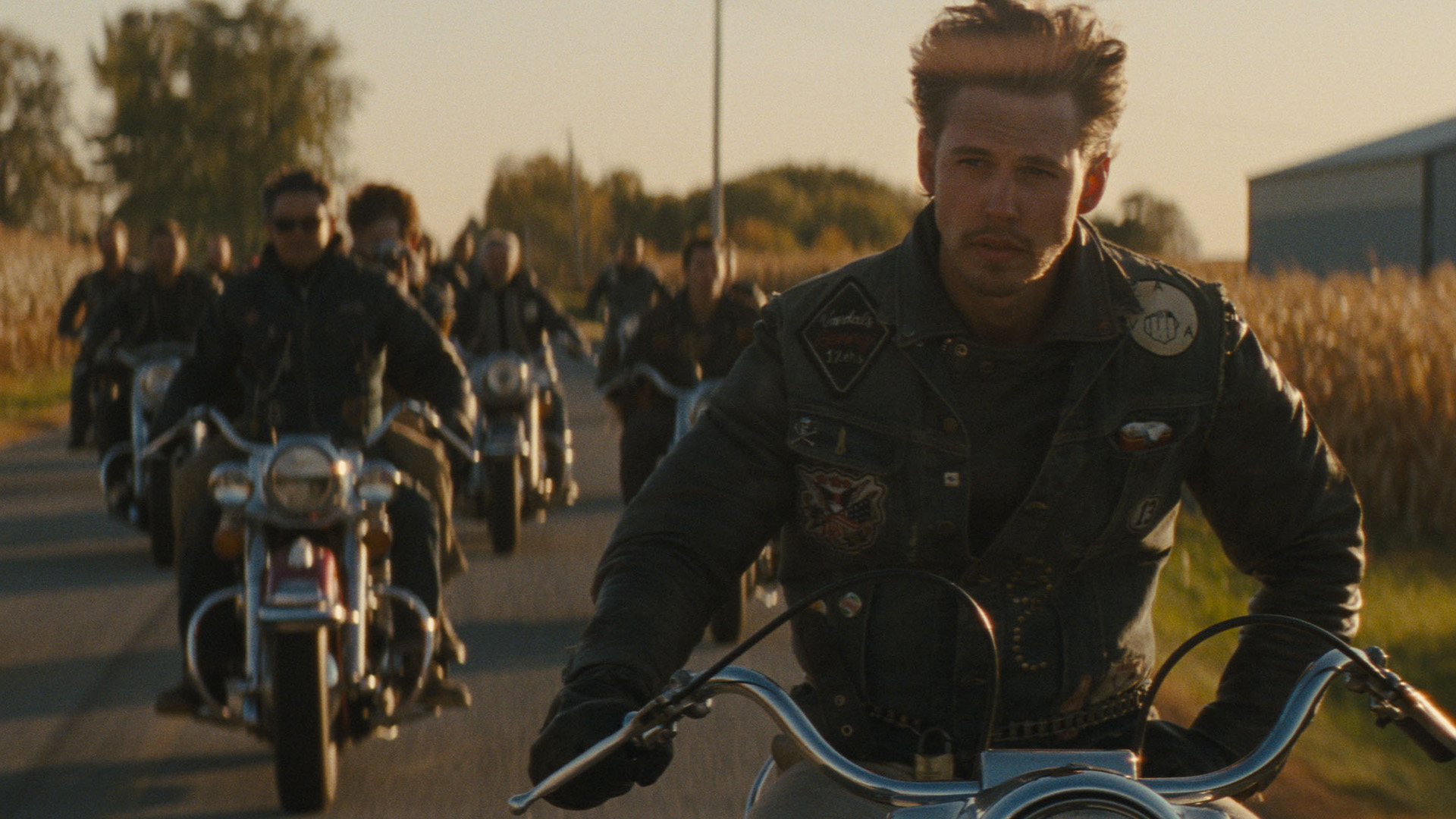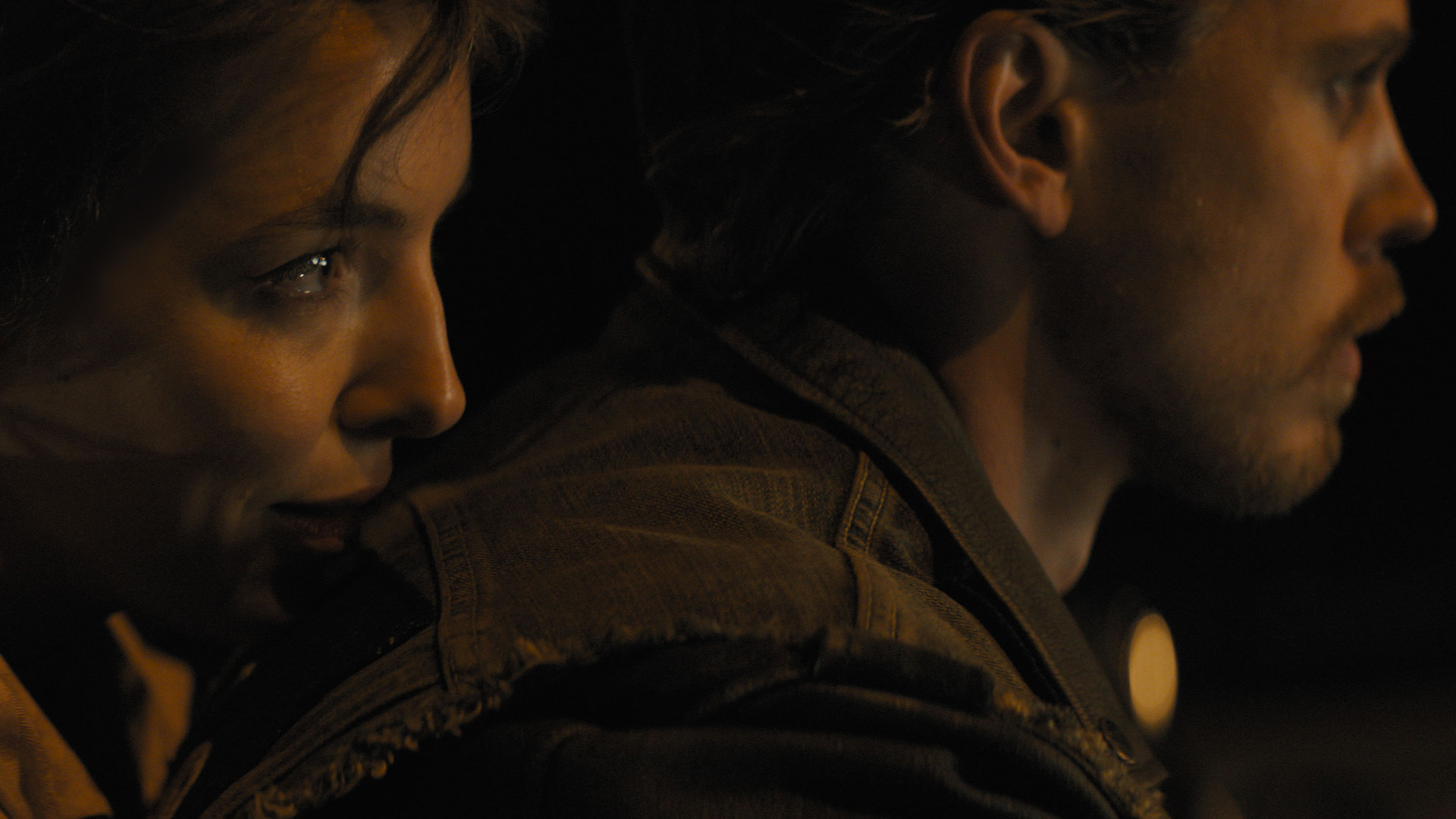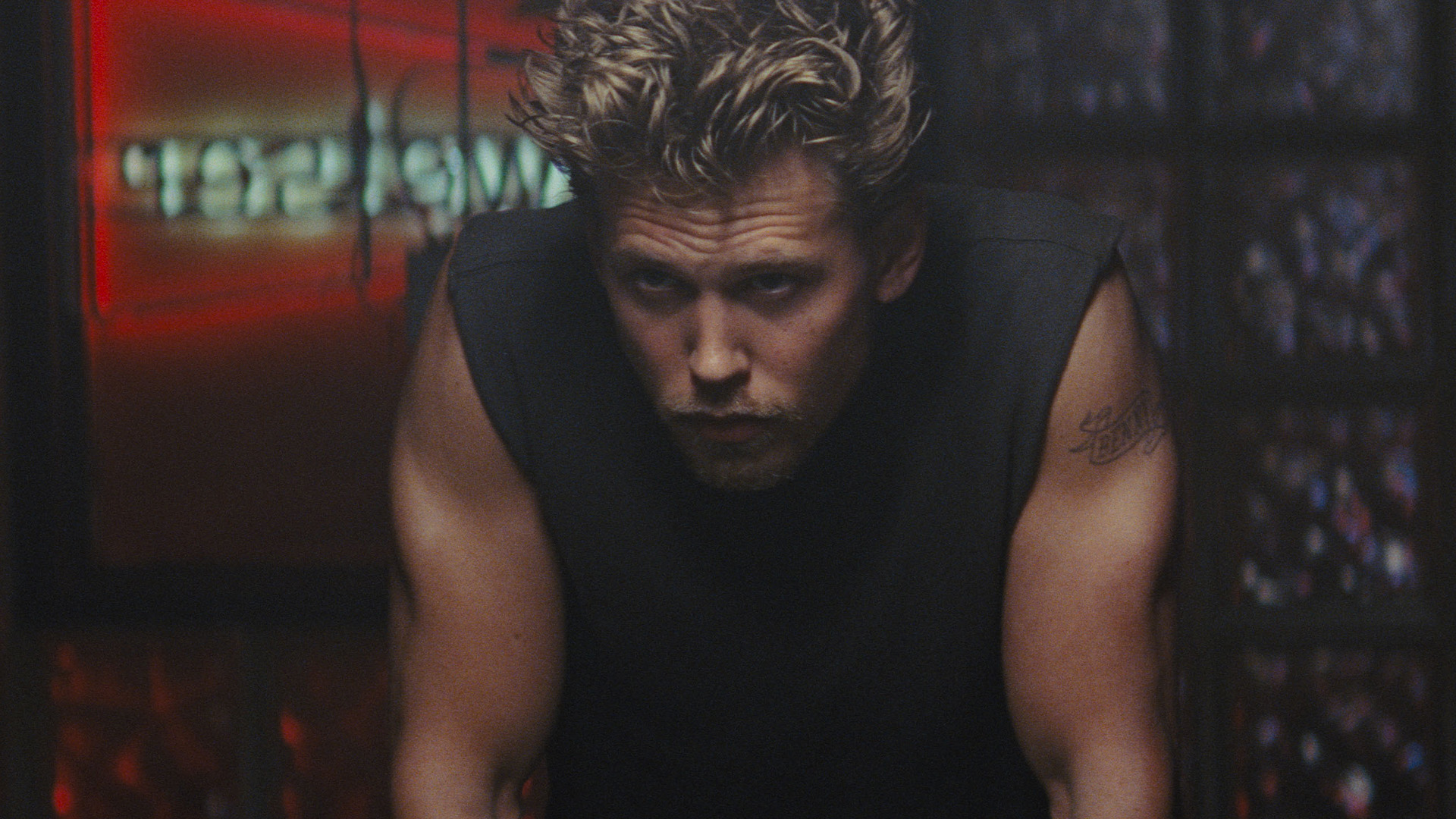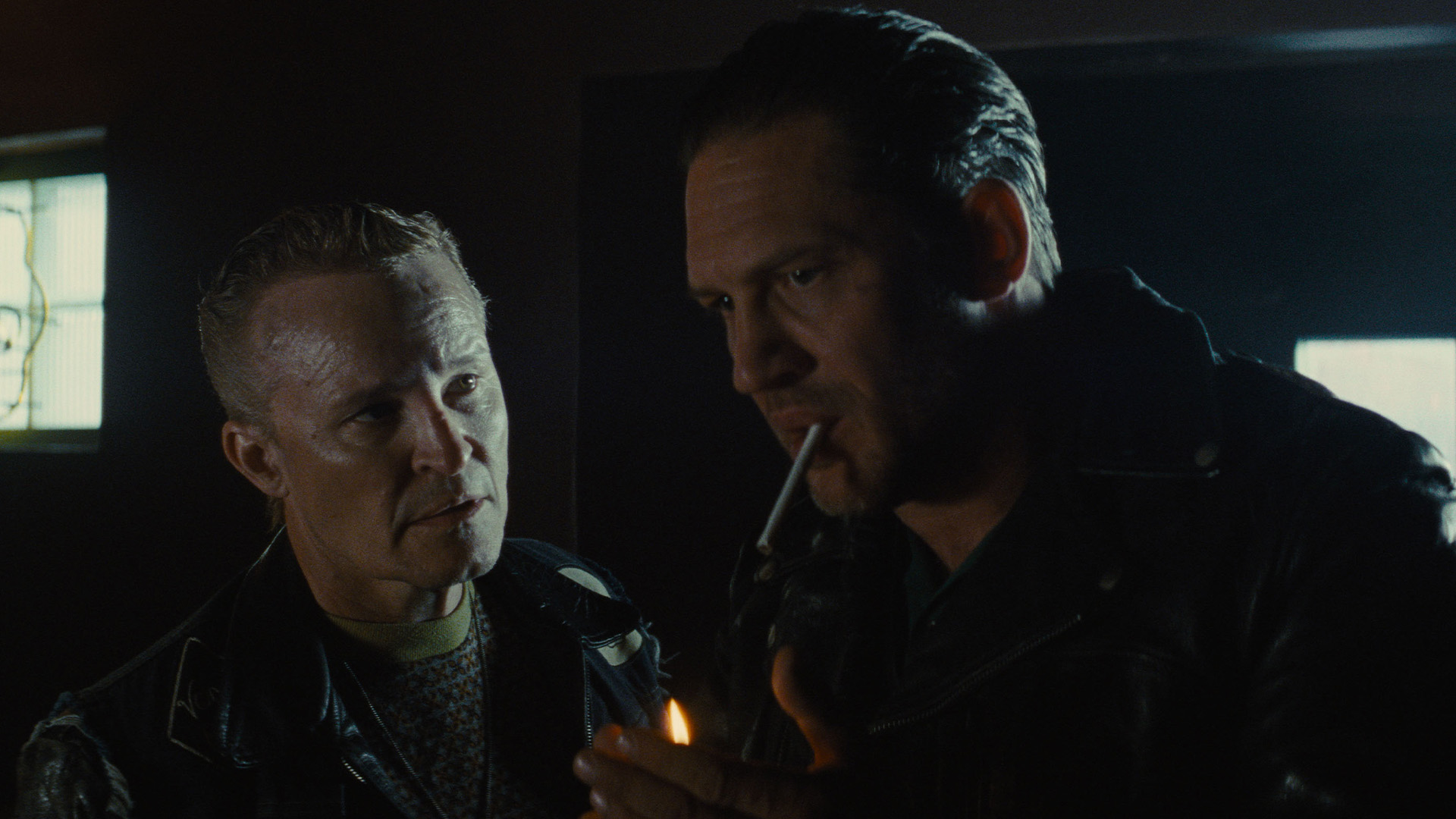1960s biker pic The Bikeriders offers satisfactory but surface-deep drama

Austin Butler, Jodie Comer and Tom Hardy star in biker drama The Bikeriders from filmmaker Jeff Nichols (Mud). Despite its cast, Nichols’ most mainstream film yet struggles to lance its themes, writes Rory Doherty.
It has been a historic year for the male supporting role; after spending Oppenheimer, Killers of the Flower Moon and Napoleon pointing at the obscure character actors we recognise from bit parts and TV roles, Jeff Nichols’ The Bikeriders has swooped in to provide a sweaty, dirtbag alternative. Led by a crop of established and rising stars—Tom Hardy, Jodie Comer, Austin Butler—The Bikeriders traces the rise and corrosion of a Midwestern motorcycle gang in America’s ’60s. But amongst the throng, you’ll spot faces from Narcos, Babyteeth, The OA, The Nice Guys, Mindhunter, The Walking Dead, House of Cards… As a film, The Bikeriders is a satisfactory but surface-deep lens into a volatile West; as an exercise in recognising actors, it’s faultless entertainment.
Nichols shows us the dispossessed rallying together to form a community of self-defined outlaws, falling in line behind the their gruff leader, Johnny (Hardy). That’s until their flawed, unfocused creed of self-determination gradually gets the better of them and the wolfpack is subject to debilitating conflict, where violence becomes an instinctual method of expression and frayed relationships—like that between lone wolf Benny (Butler) and his wife Kathy (Comer)—reveal the dysfunction that has always lingered at their core.

Our three leads may be the only characters in the film with sensible names; the rest of the gang must make do with being called stuff like “Cockroach”, “Funny Sonny”, or “Wahoo”. That’s unfair—our pseudo-narrator is plain-old Danny (Mike Faist), an investigative reporter and photographer who seeks to document and archive the gang’s heyday. A framing device sees him interview Kathy at length, pushing her to reflect and recount her insight on all these large, lumbering, hairy men and what they keep close to their chest.
It’s a welcome perspective from a woman who, by design, was kept at arm’s length from the true intimacy the men shared with their own gender, but like many things in The Bikeriders, it doesn’t feel fully realised. Kathy could have easily provided a voiceover narration directed at an unseen interviewer; there’s not much for the very talented Faist to do here.

Benny, Kathy, and Johnny form a triptych of conflicted loners, all of whom want something from each other and are tied to the gang more than they’d like. When faced with the conundrum of abandoning his Elvis voice, Butler chooses to barely speak at all, leaning against his muscly machine with a pointed, dazzling broodiness that successfully extricates Kathy from her pre-existing partner to saddle with him forevermore.
Comer speaks in such a thickly performed Midwestern accent it’s Fargo-esque, but after initial disorientation you soon settle into it—after all, the film needs to immerse us in a place and time that we only know from pictures, to actually inhabit this world we must be taken somewhere starkly unfamiliar. Hardy is regrettably doing the same unintelligible, squinting scowl he’s veered towards repeatedly over the past decade. Still, Johnny and Kathy are the source of most convincing drama—they are effectively two slighted romantic rivals vying for over an inarticulate baby husband who they know is seconds away from driving off into the sunset.
The erratically-named supporting players in the film add most of the film’s texture, feeling less like A-listers putting on an accent and more like entities that grew, weed-like, out of the chipped tarmac of Midwestern roads. But they alone cannot manifest the tone and atmosphere that The Bikeriders needs to pull off—despite Nichols paying clear attention to the beefy sound mix and pristinely composed vistas.
When you start to notice the bikers wearing what looks suspiciously like Iron Crosses and no-one mentions it, you realise this narrative has been more than a bit sanitised. Nichols is uninterested in deconstructing the type of American violence that’s bred in these splintering biker gangs. Yes, it was Vietnam; yes, it was organised crime and drug dependency, but what do we gain from suppressing these perspectives into narrative cliche?

In his most mainstream film yet, Nichols (who also adapted the photobook by the real Danny Lyon) signals that the sun may have set on his peculiar, bristling and modern stories of Western men. Shotgun Stories, Take Shelter and Mud are all steeped in mythology and religious sentiment, burrowing down into the most inscrutable men and telling tall tales of their insecurities, resentments and fears. With Midnight Special, Loving, and now The Bikeriders, Nichols opens up his films to more accessible pleasures—sci-fi archetypes, historical romance, and now bikeridin’ crime.
These comparatively mainstream efforts have yet to lose all signifiers of Nichols’ sensitive and rigorous storytelling skill, and even the least singular of his works still boasts impressive and sumptuous visuals. And yet, something has clearly been compromised. The Bikeriders struggles to lance its themes with any sure-footed aggressiveness, and fails to paint a picture that couldn’t be found in a photobook.
Originally published by Flicks on December 12, 2023


















